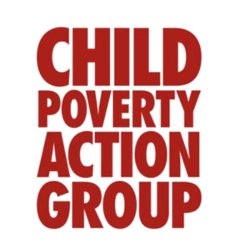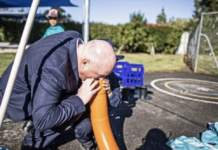Latest figures measuring child poverty rates in Aotearoa New Zealand are a sad indictment on the country with no real improvement in policy that could turn things around, according to Child Poverty Action Group (CPAG), the leading voice on the issue.
StatsNZ data released today shows no real change in all areas used to measure child poverty rates in New Zealand.
“This is an appalling situation. The future is bleak for these children who are languishing in poverty. The country’s future is also blighted by this because we’re not investing in children,” said Prof Emeritus and CPAG health spokesperson Innes Asher.
About one in 10 children experience material hardship where their households cannot afford things like regular healthy food, doctors visits or to pay their power bills on time, according to the StatsNZ data.
“The trouble is, of the almost 9,000 households surveyed in this data, there was no inclusion of our most vulnerable families. Families living in motels and other emergency accommodation, as well as cars and other forms of homelessness were not included,” Prof Emeritus Asher said.
“The real picture is likely to be a lot more grim as anecdotal evidence suggests the numbers of families in these dire situations is on the increase.”
“We also know poverty is a driver of preventable hospitalisations, which is another reason to urgently address child poverty, for the sake of our overburdened health system.”
The picture for Māori and Pasifika children is much worse, according to the data.
One in five Māori children and one in four Pasifika children experience material hardship, according to StatsNZ.
CPAG convenor and housing spokesperson Alan Johnson said radical changes to tax and welfare were needed. The government needed to show more courage than it had in the past five years if it wanted to turn things around, he said.
“How could there be any change in the rate of child poverty in New Zealand when there have been no policies implemented that could turn things around? He said.
The lack of improvement in the data makes it harder, according to CPAG, for the government to meet its ten-year targets by 2028.
CPAG called on the government to fully adopt the 42 recommendations of the government-appointed Welfare Expert Advisory Group’s February 2019 report. So, far not one of the recommendations had been fully implemented in the four years since the group’s report was published.
“The government has tinkered with policies here and there but there’s been no game changer that gives those of us advocating for children any real hope that the situation will be turned around. It’s shameful.”
CPAG was also concerned about the rate of children with disabilities – 1 in 5 – who were living in material hardship.
“We know that any household with a disabled family member is more at risk of living in hardship,” said Mr Johnson.
There is no data around the number of disabled children who are Māori. CPAG is concerned about that cohort with a double risk factor and is calling on the government to start including this cohort in its data.
“Again, some of our most vulnerable are not being measured by this data,” he added.
CPAG urged all political parties to put children at the front and centre of election-year promises.
Last year’s figures can be found here.





The crazy thing about it is that every dollar spent alleviating child poverty apparently returns a benefit of 7 dollars in reduced lifetime underachievement and crime, etc: https://academic.oup.com/swr/article-abstract/42/2/73/4956930?.